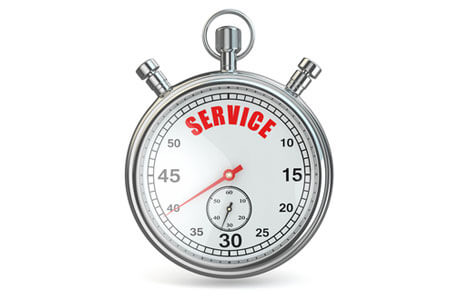
As a call center manager, working one-on-one with your agents can be the most productivity-enhancing tool at your disposal. Call centers know that they need to coach their agents – the trouble comes in finding time to do it. And often, it’s not even a matter of not enough time, but of not wisely using the time that is available.
Coaching is really all about providing feedback, helping agents to understand what works and what doesn’t and to help the agent perform better in a given area that is lacking. Coaching enables agents to learn from the knowledge, skills and experience of those who know their business best – their supervisors (who are often former agents themselves). And when done well, research shows that these techniques are the single most effective method of training adults and quickly teaching new behaviors.
Just like with a sports team, agents who have received good coaching tend to perform at a higher level. Those agents who have received proper coaching are more satisfied with their jobs, so they stick around longer and work even harder to deliver the best service possible. Just about the worst scenario for an agent is one where they must answer, “I can’t help you.” Coaching helps agents avoid this answer by being able to respond more effectively during customer interactions.
Over the years as we have watched our clients nurture a better agent workforce, we’ve uncovered certain trends regarding how call centers manage the coaching and one-to-one education of their frontline. The seven guidelines below can be put to use in your call center to get the most out of your coaching initiatives:
- Every agent requires individualized coaching. Coaching every agent, from the one who is struggling to your top performer, is necessary if you are to drive continued development. Why would you allow an under-performer to continue at that level and risk damage to a customer experience? And your top-tier agents are probably looking to advance and take on more responsibility, and coaching them for these opportunities encourages loyalty, job satisfaction, and better customer interactions.
- Develop a “coach’s playbook.” Instead of just providing advice, implement an action plan for supervisors to follow with every agent. Use the plan to identify key steps involved, areas where the agent struggles, the behaviors needed to perform successfully, and ways to change those behaviors.
- Engage your agents. Show your agents that you have confidence in their abilities by asking them to identify where they may be struggling. Quite often, these agents know they need help but aren’t sure how to ask for it. Coaching is just as much about asking questions (and getting truthful answers) as it is in relating proper procedure. Asking for their input in identifying their own improvement plan engages agents and invests them in their own development.
- Make coaching a priority. Set aside time for every agent to receive coaching on a consistent basis. Use intraday management solutions to schedule regular coaching sessions during redistributed idle time.
- Establish metrics for accountability. Measuring whether or not targeted coaching goals are met establishes accountability. By adopting a measurement system that shows how much and what types of coaching agents receive, and also linking this to performance, constant improvement through coaching becomes systemic in the call center.
- Be positive and deliver constructive feedback. Effective coaching relies on positive feedback. Instead of just pointing out agent shortcomings, suggest a different approach they could use. This tactic helps to keep both you and the agent motivated toward improvement.
- Enlist support from all levels. Getting senior-level buy-in for your coaching program provides a level of accountability and “cred” to your efforts. Coaching should not be viewed as nice-to-have activity when call volumes are low. Instead, it should be understood that coaching is a vital part of the operational health of the call center. Agents and coaches alike will make a greater effort in their coaching sessions if they know that management is thoroughly supportive.
Coaching requires time, and time is usually a scarce commodity in the call center. Fortunately, intraday management solutions help call centers make use of non-productive idle time for coaching time, and when management acknowledges the value of coaching, agents and call center managers alike can set aside that time without fear of hurting service levels or the customer experience.